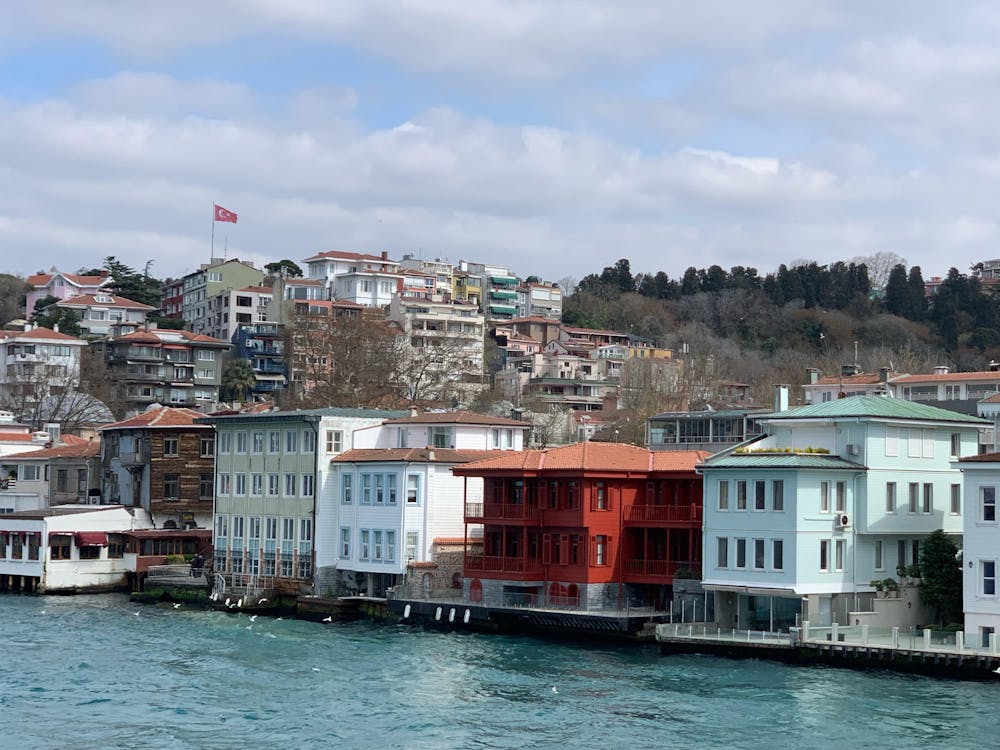Do you also have those words, phrases or idioms that exist in your native tongue that you could never translate to another language? When I moved to the U.S. last year after living in Turkey for 19 years, I had plenty: I still remember the first few weeks of being here and how naked I felt without my witty Turkish vocabulary.
I recall several occasions where I had the perfect Turkish idiom in mind, but faced the frustration of not being able to translate it to a non-Turkish speaker. Sometimes, I could come up with a satisfactory translation, but, deep down, I was aware that I could never give the perfect interpretation that could fully communicate the history, intensity and sentiment of the phrase.
There were some words that technically had a direct English translation, yet even those didn’t fulfill me. The word pistachio bothered me. Pistachio from where? Antep? Siirt? The Turkish word (Antep or Siirt fıstığı) specified it; English didn’t. Cobblestone pavements felt a lot less whimsical than calling them Arnavut kaldırımı, meaning Albanian pavements and honoring Albania’s Gjirokastra, the “The City of Stone.” The Albanian masters of this pavement style inhabited Arnavutkoy (literally translated to Albanian village) back in the 19th century, and I grew up drawing hopscotch grids on the pavements they had built.
When I went to Miami for spring break, I curiously walked into a Turkish restaurant to check out their menu and felt it was missing something when I saw haydari, humus and imam bayıldı labeled as “appetizers,” not “mezes.” Appetizer felt empty and monochrome, although I knew it was a translation to meze. It felt like my refreshing, creamy cacık and filling, flavorful piyaz deserved to be spared from such an indistinct name.
Although I tried to go without my Turkish idioms, I couldn’t make it last forever and decided to indoctrinate my friends by giving them impromptu Turkish literature classes, announced with “We have a saying for this in Turkish.” A friend who mentioned that they loved computer science yet hated their Intermediate Programming class? Perfect opportunity to say “If you love the rose, you’ll bear the thorn.” A friend made fun of me because I slipped on the muddy road at the Beach? Time to remind them to “not laugh at their neighbor; otherwise, the same will happen to them.” Someone is contemplating if it’s a good idea to join two labs on top of taking 18 credits? How many times do I need to remind people that “two watermelons can’t fit in a sofa?”
Even though my friends kept making fun of me because I couldn’t go a day without quoting a wise Turkish saying or reminiscing about my native tongue, I didn’t let this stop me. These idioms connected me to my homeland with which I was now separated by thousands of miles (and several-hundred-dollar plane tickets). The comfort of communicating something in just a few words in Turkish instead of the pages and pages of writing in English soothed me.
Nevertheless, last summer, something surprising happened. After being in the U.S. for a year and going back to visit my family during summer break, I experienced the same problem, yet reversed. When my mom asked me if my bed was still as comfortable as I remembered it to be, I wanted to tell her that I was “snug as a bug in a rug,” yet I couldn’t because it didn’t flow the same way in Turkish (and my mom would probably think I was imagining myself in Franz Kafka’s Metamorphosis). There have been moments where I wanted to point out the “elephant in the room” or ask someone to “hold their horses,” but their Turkish translations didn’t scratch my brain the same way. As I was having conversations with my Turkish friends, I realized that we insert English slang words like “vibes,” “slay” and “rizz” a lot more often than I expected, and I could find no substitutes for them in Turkish.
A year ago, the only thing that rang in my brain whenever my Turkish thoughts described a situation more successfully than my English tongue was, “I wouldn’t be me without my Turkish idioms.” Yet now, I can’t imagine myself existing without writing and speaking in English, especially since I’ve started to use this language more often while engaging in creative writing.
I have come to terms with the fact that I can coexist in two languages and let them connect me to a land in which I might not be physically present at that very moment. By making peace with the non-coinciding lines between my mother tongue and a language I have adopted years later, I no longer allow myself to get lost in the translation.
Buse Koldas is a sophomore from Istanbul, Turkey majoring in Chemical and Biomolecular Engineering. She is the Voices Editor for The News-Letter.





